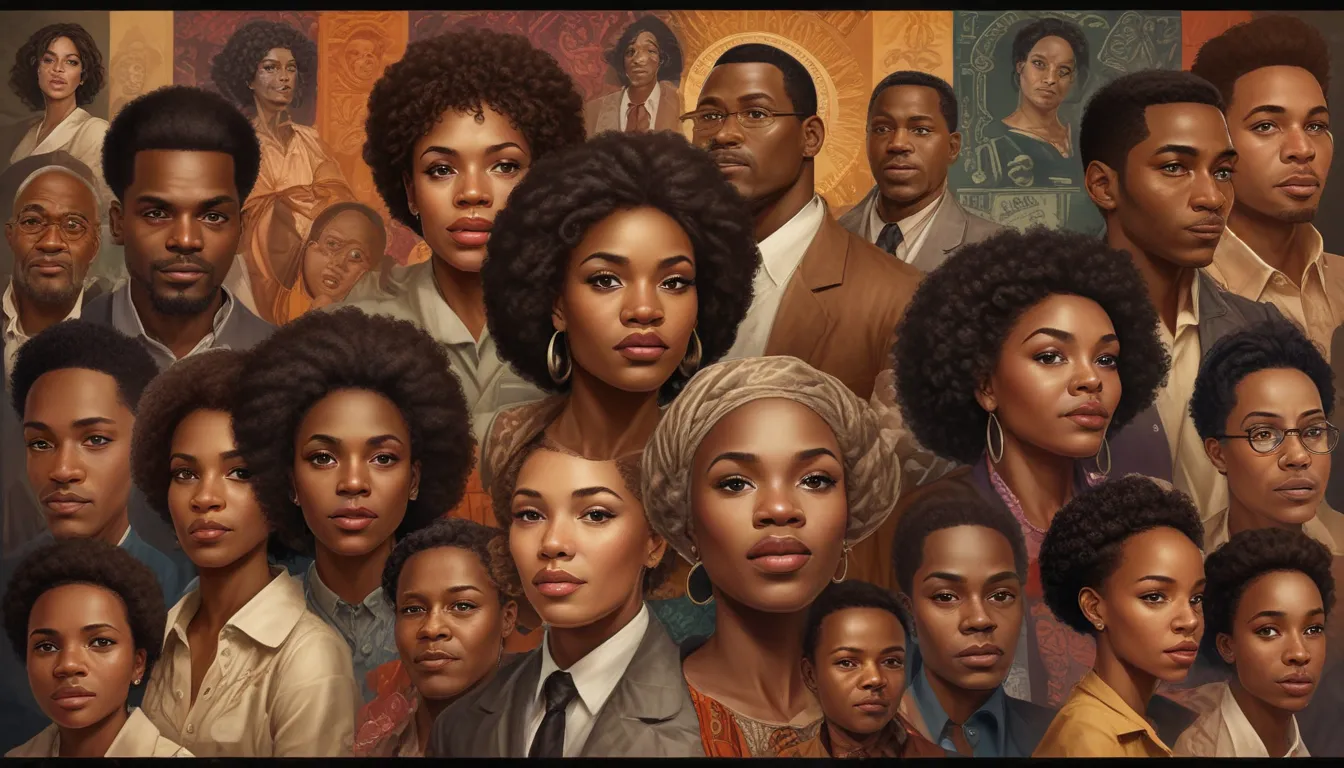The images in our articles may not match the content exactly. They are used to grab your attention, not to show the exact details in the text. The images complement the text but do not replace it.
As we commemorate Black History Month, it is essential to delve into the rich tapestry of facts and insights that define this significant celebration. From its humble beginnings as Negro History Week to its modern-day recognition as Black History Month, this annual event holds a deep historical and cultural significance for many nations around the world. Join us as we explore the essential facts, intriguing details, and inspiring stories that shape the narrative of Black History Month.
Unveiling Black History Month Facts Infographics
Black History Month Is Almost 90 Years Old
One of the foundational Black History Month facts reveals that this celebration traces its roots back to 1926 when it was known as Negro History Week. Initially observed for just a week, starting on February 12, the event faced mixed reception from the public. However, over time, Negro History Week gained popularity, spreading across almost every state with a significant African-American population by the 1930s.
President Gerald Ford Officially Recognised the Month-Long Celebration in 1976
As the years passed, the celebration of Negro History Week evolved and expanded, culminating in its transformation into Black History Month. President Gerald Ford played a pivotal role in officially recognising this month-long commemoration in 1976, solidifying its place in the cultural landscape of the United States.
There Are 45 Million Black People in the United States
Today, the African-American community plays a vital role in shaping American society, with approximately 45 million black individuals residing in the country. Projections suggest that by 2060, this community is expected to grow to 74.5 million, constituting 17.9% of the national population. These numbers underscore the significant demographic influence of black men and women in the United States.
Black History Month Is Also Celebrated Outside of the US
Beyond the borders of the United States, Black History Month finds resonance in other nations such as Canada and the United Kingdom. These countries have embraced this cultural celebration, with Canada officially recognising Black History Month in 1995 through unanimous approval. In the United Kingdom, this month-long observance takes place in October, showcasing the global reach and impact of black history and culture.
The Celebrations Focus on a Different Theme Every Year
Central to the essence of Black History Month is the annual adoption of a distinct theme that provides a focal point for celebrations. Originally conceived by Carter G. Woodson to direct public attention, these themes capture the evolving status and self-perception of African-Americans in society. Themes such as “A Century of Black Life, History, and Culture” underscore the depth and diversity of black heritage and contributions.
February is an Important Month in Black History
The strategic choice of February as the month to observe Black History Month holds a profound significance in black American history. This decision by Carter G. Woodson aligned with the birthdays of two influential figures, Frederick Douglass and President Abraham Lincoln, highlighting their enduring impact on the African-American narrative. Additionally, the historical enactment of the 15th Amendment on February 3, 1870, granting voting rights to black men, further solidifies the importance of February in black history.
Black History Month Inspired the Celebration of Juneteenth
Rooted in the legacy of Negro History Week, Black History Month served as a catalyst for the commemoration of Juneteenth, a holiday celebrating the abolition of slavery in Texas in June 1865. Officially recognised in Texas in 1980, Juneteenth symbolises freedom and unity for the African-American community, advocating for broader acknowledgment and acceptance of diverse cultural narratives.
Black History Month was Intended to Bridge Gaps in Education
The visionary efforts of Carter G. Woodson to promote the study of black history and culture aimed at bridging educational disparities prevalent in segregated schools. Recognising the disconnect between scholarly advancements at the university level and the lack of access to such knowledge in underprivileged schools, Woodson championed the integration of black history into the educational curriculum. This educational mission underscores the transformative impact of Black History Month beyond celebratory observances.
The Scope of Celebration Goes Beyond the Black Men and Women of America
In a testament to inclusivity and diversity, Black History Month transcends individual recognitions of well-known figures to honour the myriad contributions of faceless and nameless individuals worldwide. Carter G. Woodson’s vision encompassed not only the achievements of politicians and scholars but also the invaluable contributions of artisans, inventors, and professionals across various domains. This expansive approach highlights the multifaceted tapestry of black history and culture.
Carter G. Woodson Founded the Journal of Negro History
Complementing his advocacy for black history education, Carter G. Woodson was instrumental in founding the Journal of Negro History in 1916. This publication, aimed at dispelling myths and promoting awareness of black heritage, served as a scholarly platform for historical research and cultural exploration. Woodson’s enduring legacy extended beyond the confines of celebratory events, leaving an indelible mark on the academic landscape of black history studies.
In the spirit of honoring Black History Month, let us continue to embrace the diverse narratives, triumphs, and struggles that define the rich tapestry of African-American heritage. Through education, celebration, and reflection, we can collectively appreciate the enduring legacy of black history and its profound impact on shaping society. As we navigate the complexities of the past, present, and future, let us stand united in commemorating the resilience, creativity, and contributions of the black community to our shared humanity.






